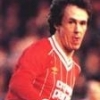-
Sign up for free and receive a month's subscription
You are viewing this page as a guest. That means you are either a member who has not logged in, or you have not yet registered with us. Signing up for an account only takes a minute and it means you will no longer see this annoying box! It will also allow you to get involved with our friendly(ish!) community and take part in the discussions on our forums. And because we're feeling generous, if you sign up for a free account we will give you a month's free trial access to our subscriber only content with no obligation to commit. Register an account and then send a private message to @dave u and he'll hook you up with a subscription.
What single event has summed up this car crash of a season?
-
Recently Browsing 0 members
- No registered users viewing this page.
-
Who's Online 80 Members, 2 Anonymous, 490 Guests (See full list)
- Creator Supreme
- YorkshireRed
- rafaisgod
- Captain Willard
- Code
- 3 Stacks
- aws
- Aventus
- VERBAL DIARRHEA
- SasaS
- suzy
- David Keelaghan
- Tenfolder
- Crazy Dave
- TheHowieLama
- Planet Origi
- KevieG
- Dapower
- Chris
- Smell The Glove
- Lee909
- Gnasher
- Byrnie
- Elite
- littletedwest
- Kevin D
- Jimmy Hills Chin
- Scooby Dudek
- El Rojo
- Paulie Dangerously
- The Guest
- Qwikage
- Baresi
- Babb'sBurstNad
- TD_LFC
- noid
- Aonghus Flavin
- Stouffer
- Wezza
- Harry's Lad
- HazelyCosmicJove
- Vector Sigma
- red_herring
- ottawa_lfc
- ralph
- stringvest
- Moo
- Kamma
- Mark M
- Wicket
- Shitty Arse
- redheart
- Mook
- Clem H Fandango
- i5x
- Edward.
- Curly
- Harry Squatter
- Double 86
- skend04
- Mudface
- Kepler-186
- Martin J Gallagher
- Dr Nowt
- Six Times
- Manny
- Judge
- Tj hooker
- Lisa
- The-Sir
- Bobby Hundreds
- DalyanPete
- Bogman
- KingLuis
- BeefStroganoff
- bizzle10
- Alan McDougall
- galvey1980
- The Midnight Rambler
- Bjornebye




Recommended Posts
Join the conversation
You can post now and register later. If you have an account, sign in now to post with your account.